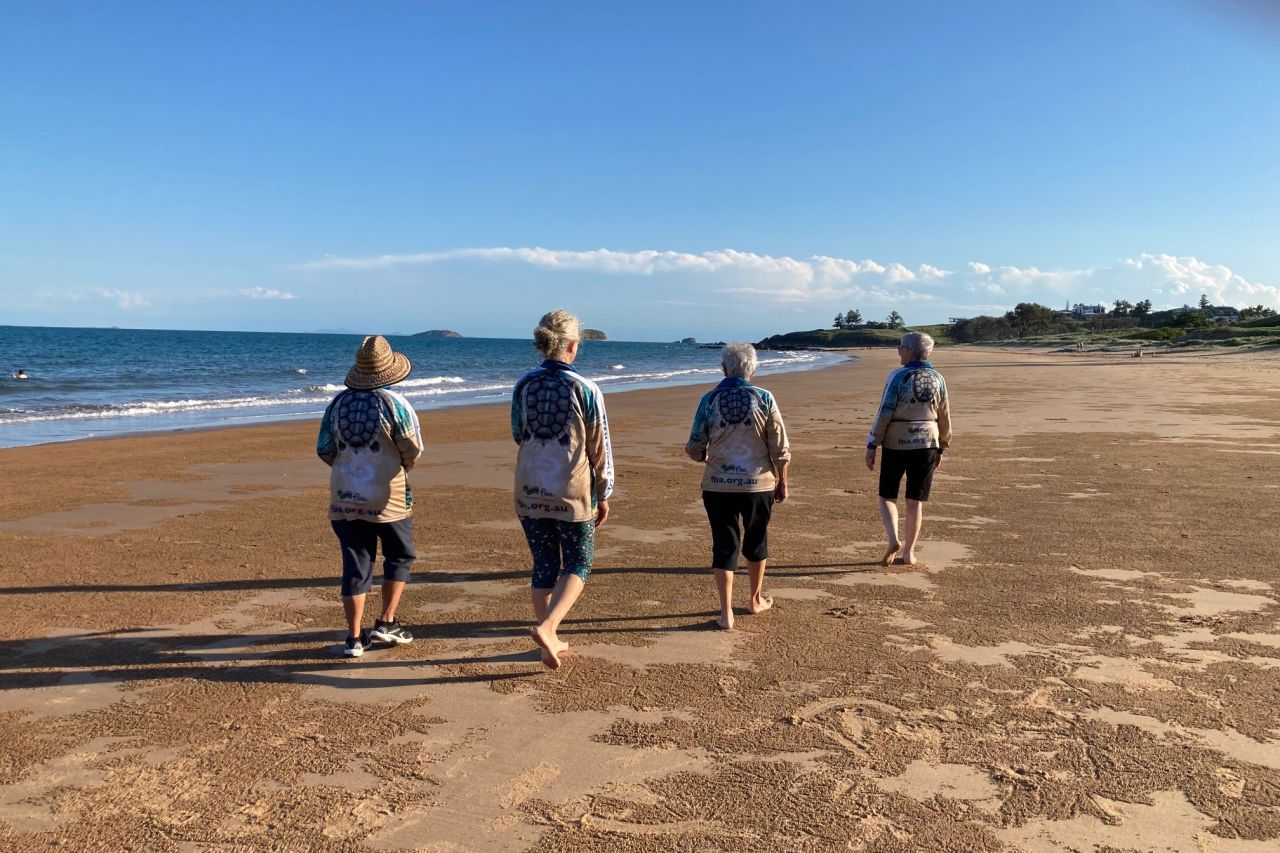People of the Reef ·
Rebecca French: ‘Caring for people and land is vital for the Reef’
Working with people and caring for land are at the heart of Rebecca French’s day-to-day with the Fitzroy Basin Association.
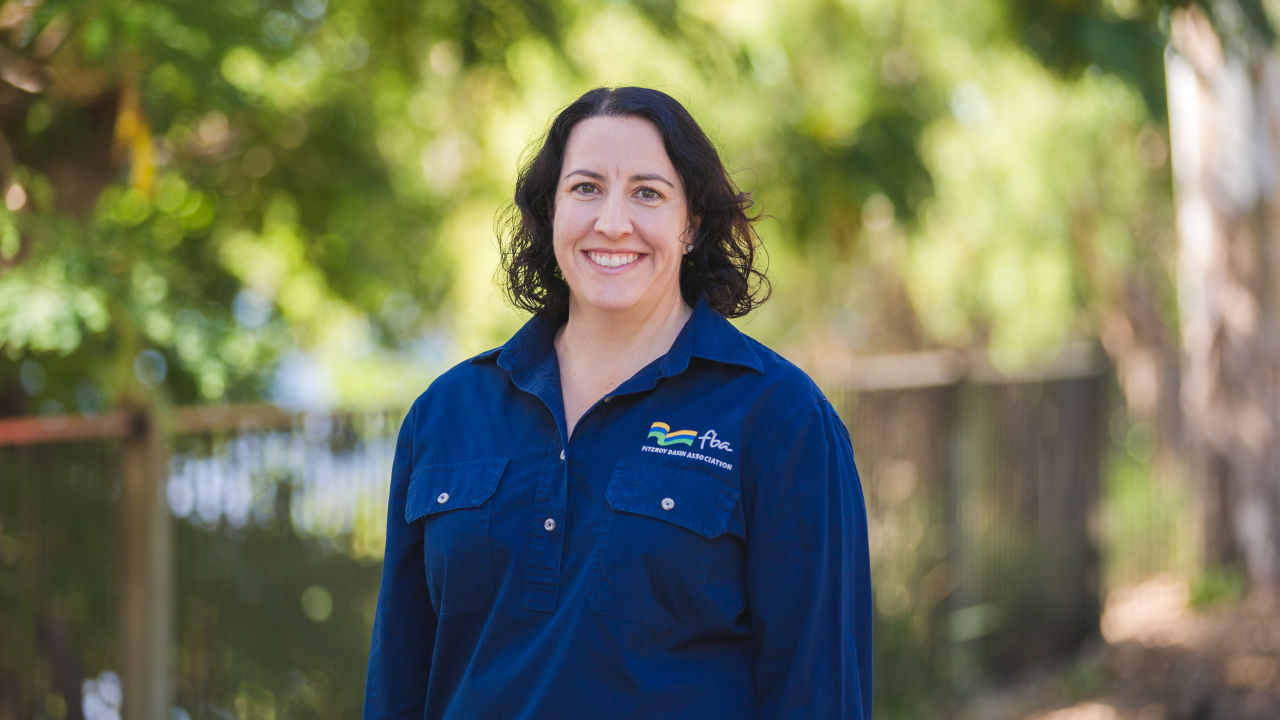
Ever wonder what motivates our project partners to protect the Great Barrier Reef? For some it’s conducting cutting edge scientific research, for others its improving water quality across catchments or inspiring the next generation of Reef leaders. For Rebecca French, it’s being able to help people reconnect with land and sea everyday through Fitzroy Basin Association’s (FBA) many community outreach programs.
Rebecca is the Partnerships and Strategy Manager for Fitzroy Basin Association, a natural resource management group in central Queensland that helps people look after land, species and habitats to leave the world a more sustainable place.
“We work directly with people every day. We’re aiming to show that it doesn’t matter who you’re working with, whether they are land managers, community organisations, individuals or groups. We’re just trying to share information about the environment and encourage people to ensure that their behaviours and their practices are ones that are going to help sustain our environment into the future,” she said.
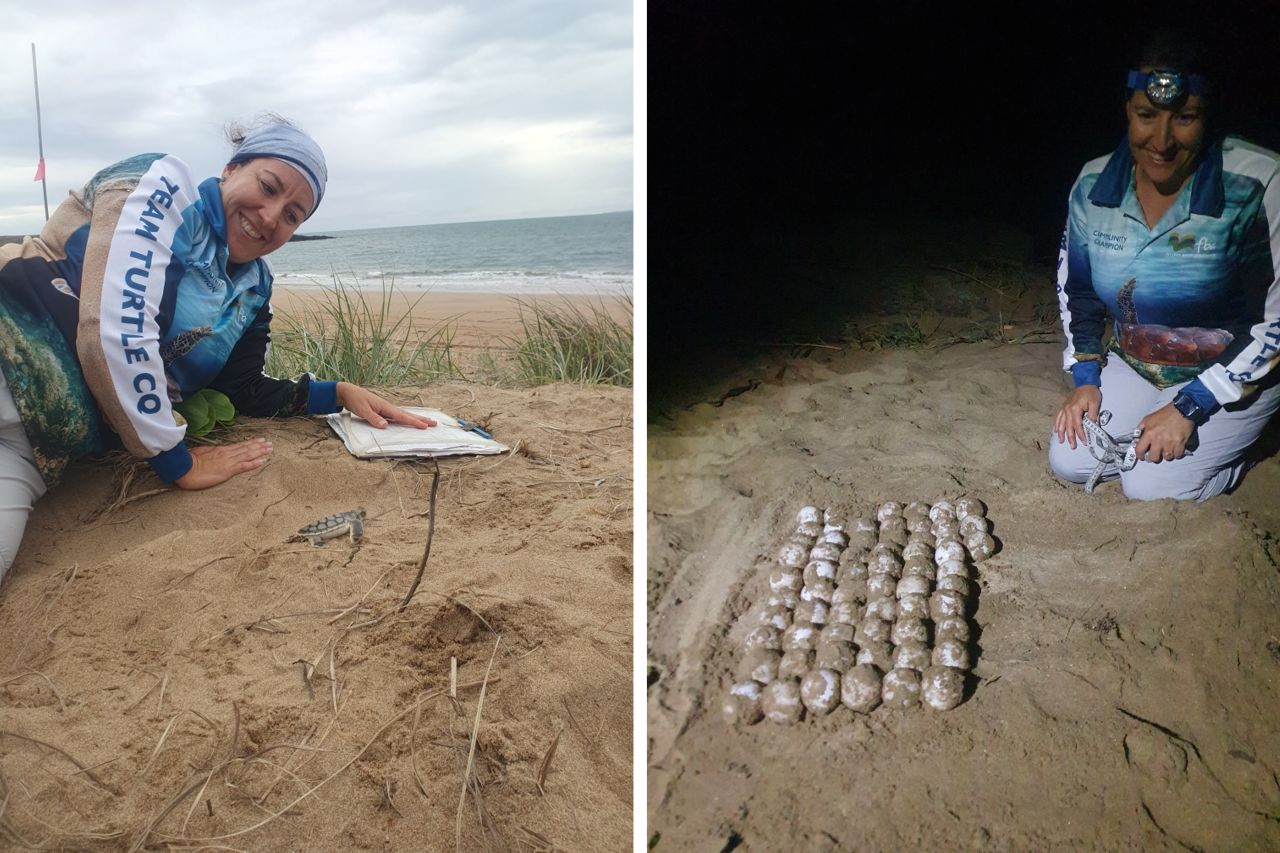
Marine Turtle Nesting and Hatching Census, Facing Island. TTCQ volunteer opportunity courtesy of Gladstone Ports Corporation (GPC), Gladstone. Credit: FBA
Growing up on a grazing property in the small mining town of Dysart, Queensland, caring for land and cattle was always a big part of Rebecca’s upbringing. She has since moved to Yeppoon to be closer to the ocean.
“I have gravitated back to that coastal environment. It's just something that's close to my heart and there's nothing better than being out in the water and having a stingray jump out or a turtle go by. Every day is different on the ocean,” said Rebecca.
One of the highlights of her work has been helping run FBA’s Team Turtle CQ program. Already in its seventh year, this citizen science turtle conservation program brings volunteers together to monitor beaches and record vital data on nesting activity.
“What I really love about Team Turtle CQ is that you meet people who just want to make a difference. They’re passionate, they want to learn and put in a lot of effort to monitor and protect our population of nesting and hatchling turtles. I like when I see people giving up time to look after the environment that ultimately looks after us.”
Turtles also happen to be Rebecca’s favourite sea creature. “They're such an amazing, evolved animal, that has this rich history about what drives their movement in the ocean and their nesting behaviours.”
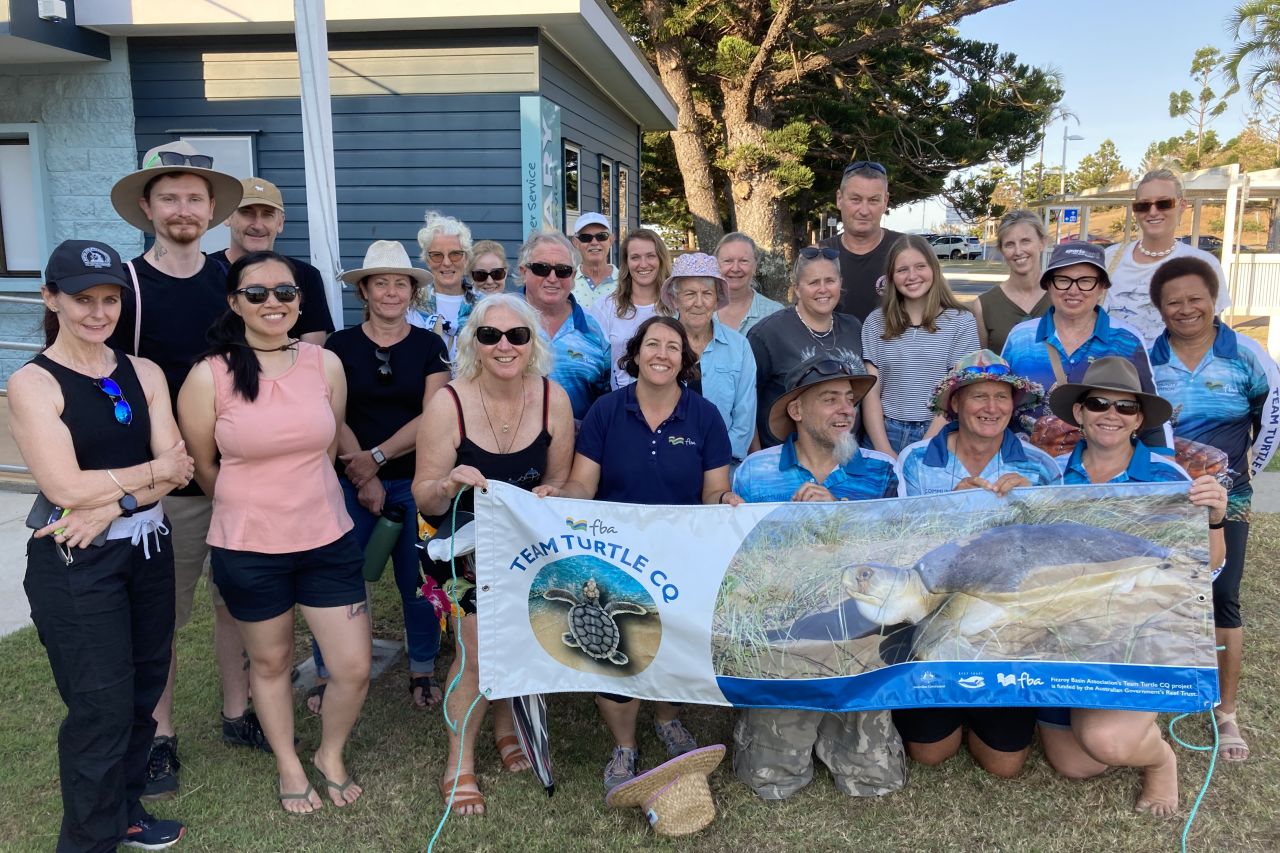
TTCQ volunteers attending 2023 training. Credit: FBA
After the initial success of Team Turtle CQ’s investment in teaching the next generation of adults to help turtles survive, FBA founded its youth arm called Team Hatchlings made up of passionate young volunteers.
Rebecca is in awe of the young Hatchling’s hard work and initiative. “That youth arm is very big on teaching people about the impact of their behaviours and sharing those messages in a positive way. Their determination is remarkable. They have just one meeting, talk about things that they might want to do, and then within a week they can organise themselves to prepare for a community event. That's something to be really proud of and admire,” she commented.
Team Hatchlings has developed a project plan to engage the public and spread messages about reducing artificial light glow from coastal housing. Their goal is to raise awareness about the impact of light pollution affecting turtle hatchlings, which can become confused and head inland rather than the sea once they’ve hatched out of their nests.
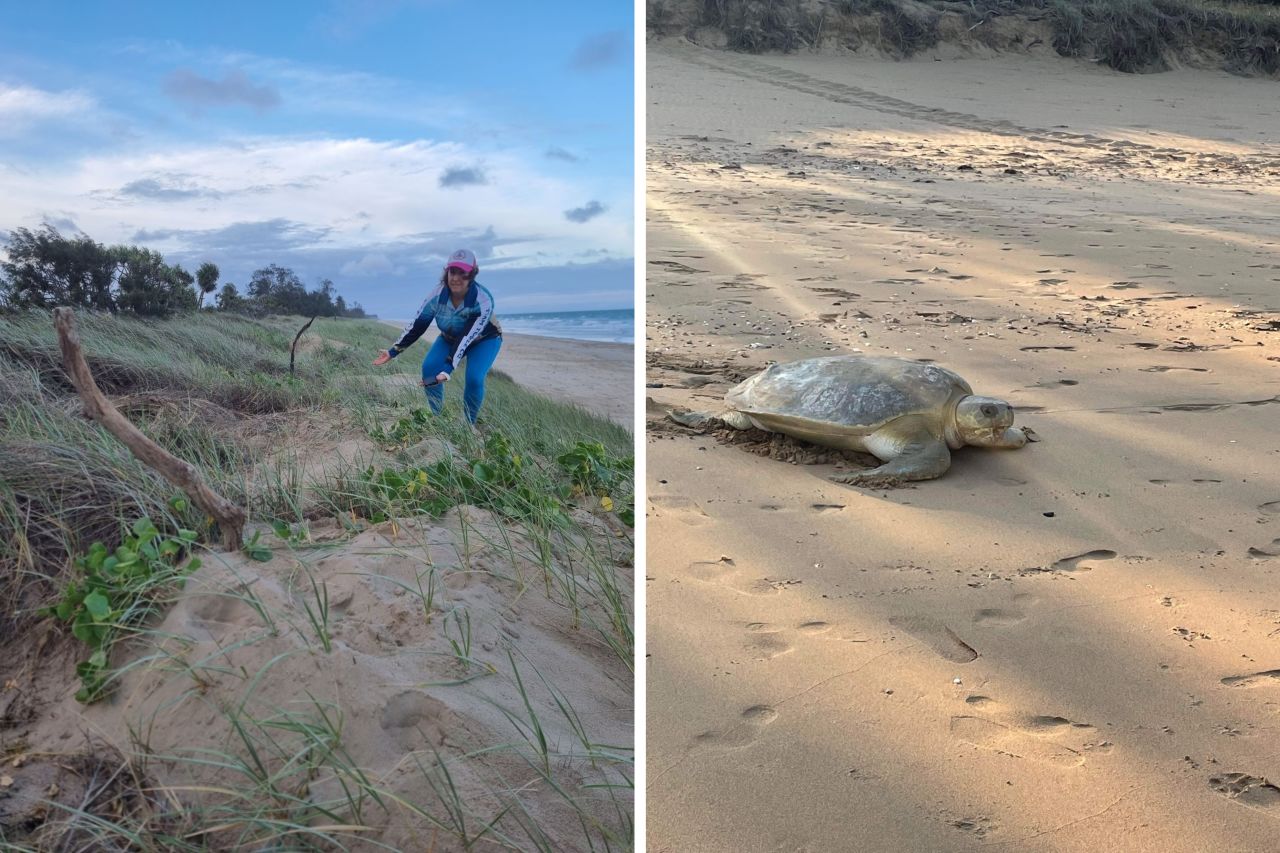
Left: Rebecca, during daily beach monitoring, pointing out the location of a recently laid nest on the Capricorn Coast. Right: Flatback turtle returning to the ocean after laying. Credit: FBA
Rebecca highlights the importance of getting people involved and onboard. Working together is vital for the best outcomes for people and the Reef.
“By involving people in these community projects you can give them a voice. I think that’s really important, particularly for natural resource management, because if people are not feeling some ownership over what you do, then your opportunity for positive influence is actually less.”
On top of the success of these turtle conservation programs, Rebecca reflects on the aspects of her work that keep her grounded and motivated.
“Establishing genuine community engagement in organisations I’ve worked within has been one of my proudest achievements. I’ve also been able to increase opportunities for First Nations involvement in projects. I really feel that there’s a maturity growing in our region around meaningfully engaging First Nations people to provide their perspectives, input, participation and leadership in programs.”
Ultimately it comes down to connection and purpose. Rebecca had some great advice on how to get involved.
“Getting people to understand that the environment that they’re in contributes to their health and supports their family is key. If they look after it, their children will be able to enjoy it too. For people thinking about getting involved, you never know the benefits until you try. It can often be quite scary or daunting to find somewhere to participate. But once you discover an opportunity to participate, you never know where that might lead.”
